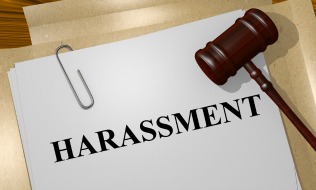
A female employee at an unspecified university in British Columbia reported to her superiors that a male colleague, a faculty member, told her he was “crazy about” her while she was still on permanent-employment probation.
The employee alleged that this, and other related behaviour at the time, was sexual harassment. And even if it wasn’t sexual harassment, it was discrimination on the basis of sex, according to court filings from December 2018.
Read: Lessons from a workplace harassment investigation gone wrong
The university and faculty member, both of whom are cited in the complaint, denied discrimination. While the parties acknowledged the faculty member’s comment was inappropriate, they said he’d already apologized several times about his behaviour, according to the court filings.
They denied that the behaviour constituted harassment or discrimination, and have applied for the staff member’s complaint to be dismissed, noting she’d already refused a settlement offer, which included $6,500 for counselling fees, $5,000 in professional coaching costs and $1,000 for moving expenses. According to the court filings, the parties also offered $30,000 in damages for injury to dignity, $10,000 of which would be contributed by the male faculty member, in addition to a six-month salary continuance of $34,572 less necessary deductions if the staffer elected not to return to work or if no suitable opportunity was found for her.
The court’s decision to grant the university and other parties anonymity at this stage in the proceedings is a somewhat unusual decision that can have serious implications for those involved, according to Nadine Zacks, a labour and employment lawyer at Hicks Morley Hamilton Stewart Storie LLP.
Read: Women more likely than men to experience workplace harassment: Stats Can
“Certainly, in my practice, there are countless times that allegations are made and are unfounded at the outset,” she says. “[Often], there hasn’t been a hearing on them, and there isn’t any real opportunity to have that anonymized or confidential at the outset and decisions are made, often preliminary administrative decisions. But that means anyone doing a search of that individual’s name who may have been individually named in a claim, their name will come up, with no context.”
While an anonymous proceeding is an advantage to employers, it’s not very common, says Zacks.
According to the court filings, the female claimant initially had a positive relationship with her male colleague when she started working for the university in 2015. However, that changed during a work-related trip when he made what she considered to be an inappropriate comment while in his hotel after a day of work.
After the comment, the claimant said they discussed it and the faculty member told her if she needed to withdraw from their work to protect herself, he hoped “she would still smile.” Following these events, the female staffer noted her colleague tried to have more conversations with her about their interaction during the trip, asked about her personal life and weekend activities and arranged to travel with her, all of which she noted was unwelcome attention.
In June 2016, when the staffer completed her probationary period at the university, she, along with the employee association, reported the incident to the university. At this point, the female staffer began medical leave, filing a claim with the Workers’ Compensation Board of British Columbia. Later that month, the employee association filed a grievance based on its agreement with the university, prompting the university to hire external investigators to look into the employee’s allegations.
Read: Some McDonald’s workers vote to strike over sexual harassment
As a result of the inquiry, the investigators described the male faculty member’s behaviour as “crossing boundaries of propriety” and “a breach of his responsibility to a staff member.” However, they also concluded his behaviour wasn’t of a sufficiently sexual nature and the female staffer didn’t suffer direct job consequences because of his behaviour, noted the court filings.
When using an external investigator, employers are hopefully benefitting from the views of someone who is separate from the organization and can view the allegations and interview the parties without bias, says Zacks. “When you’re trying to [do] an investigation internally, often that’s done through human resources or some other [entity] within the organization, and they may have had previous dealings with the parties . . . that could colour their view or be seen to have some appearance of bias, which obviously you don’t want when you’re going to try to rely on that decision going forward.”
Read: Employers need support handling workplace harassment incidents: CUPE
Employers should seek to work with an investigator that has seen similar cases, especially if they want them to come to a conclusion about whether an employee has breached a serious policy or law, says Zacks. “You want to ensure the way they’re conducting the investigation is fair and appears to be fair. You may not necessarily get all the details, but typically you’ll get an understanding of the process.”
As for the settlement, the public can’t necessarily infer anything from the university’s decision to settle, says Zacks.
“The fact that someone has put forward a settlement offer doesn’t necessarily mean they feel they’ve done something wrong,” she says. “When I’m advising and speaking with employers, it’s always evident that, regardless of how strong you think your case, there are going to be risks.”
In putting forward a settlement like this, an employer needs to consider the potential damage of having its name affiliated with a case and its subsequent rulings, adds Zacks.
